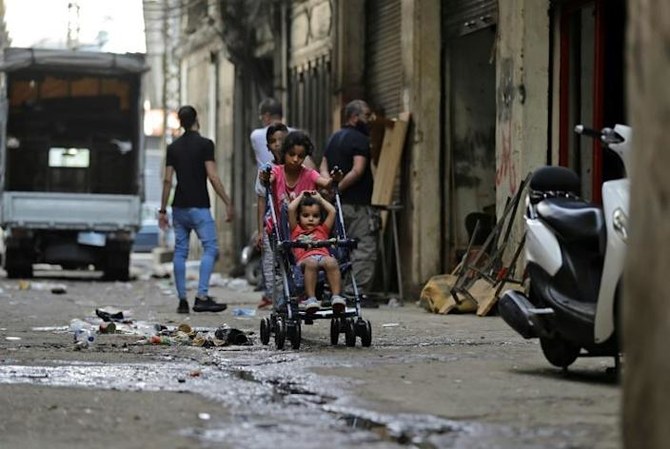
- ARAB NEWS
- 15 Jul 2025

Strain between Europe and Russia has been building for a while. Now, following the invasion of Ukraine by Russia and the West’s resultant sanctions, global economics and geopolitics are rapidly altering.
Gas and oil prices are up and Europe is keen to get fuel from suppliers other than Russia, which on the face of it could provide the GCC with a strong buffer against the negative impacts of the conflict. The Gulf states also have strong trade deals with countries in South America, Asia and Africa, as well as China, their largest economic partner. However, the situation is complex, with many knock-on effects, and of course the worst affected are always the poorest peoples and nations.
Russia has slowly been building its relations with the GCC and wider region, creating business partnerships and co-owning oil and gas pipelines rather than competing. Therefore, any hit to the supply of natural gas and oil will have an effect on those nations. While the US has been lobbying for more natural gas and oil to be produced and supplied to Europe to help counter high demand, OPEC+ is currently sticking to its predetermined monthly output increase of 400,000 barrels per day.
And, despite the conflict, projections for industry and growth in the GCC remain high. The bourses are doing well, with Saudi Arabia’s index increasing following reports of its gross domestic product showing strong annual growth of 6.7 percent.
However, even in the UAE fuel costs are rising. From a political standpoint, Kuwait and Qatar have sturdy relations with the West and have taken strong stances to call Russia out and defend Ukraine.
Doha holds a strong position as the third-largest international exporter of natural gas, but it is the No. 1 supplier to East Asia, a region that might side with Russia should the conflict expand, so care may be needed.
The UAE is taking a careful stance, condemning the invasion but not voting against Russia at the UN Security Council, since they signed a declaration of strategic partnership in 2019. The UAE has seen a near-80 percent increase in trade with Russia, not least from tourism, which will be greatly affected.
Saudi Arabia and the other GCC nations are also remaining neutral. There are suggestions Riyadh’s position has been hardened by the US considering a bill known as the Saudi Arabia Legitimate Self Defense Act, which could be introduced into next year’s annual defense legislation. This bill, introduced to Congress in February by Democratic Reps. Tom Malinowski and Jim McGovern, would prevent US corporations from servicing and maintaining Saudi military aircraft used against the Houthis in Yemen, who have been indiscriminately attacking Saudi Arabia for years. This is despite America’s previous offers of assistance to the Kingdom in its conflict with the Houthis.
Turkey has mutual relations with both Ukraine and Russia and so is keen to broker peace, although Ankara has expanded its military presence locally, as has Iran. However, while Tehran supports Russia in its displeasure at NATO having a presence in its vicinity, it has not condoned the invasion as it would prefer a deal with the US to relieve crippling sanctions.
So, while severely hampered by the West’s sanctions, Russia has strong support politically. This has been built over time by Moscow developing economic partnerships in other regions, including the GCC, which now, along with Russia and China, are not as dependent on the West as they used to be.
But we need to look beyond the direct effects on the GCC to our neighbors — those nations that do not have oil to sell and therefore are not currently riding this wave of high export prices. Syria, Lebanon and Yemen are all severely in need of aid and support, but international attention is currently diverted elsewhere.
The World Bank’s vice president for the region reported last year that the Middle East and North Africa contains more than 20 percent of the world’s acutely food insecure people. This is bad news, as Russia and Ukraine export a quarter of the world’s wheat and other cereals. Ordinarily, these two nations provide 40 percent of Yemen’s wheat.
Meanwhile, Egypt imports more than 60 percent ($3 billion-worth) of its wheat from Russia and Ukraine and President Abdel Fattah El-Sisi has now ordered the Cairo government to fix bread prices, since wheat prices are expected to rise as supply drops and as interest rates and the cost of living increase. Egypt, which is heavily dependent on tourism, will also see large drops in income since as much as a third of its visitors come from either Ukraine or Russia.
A 2018 report by the UN Economic and Social Commission for Western Asia showed Egypt to have a poverty rate of 28 percent, with 12 percent lacking in nutrition. The reduced supply of wheat and increased import costs will be particularly problematic, as El-Sisi has previously announced a state of water poverty, meaning there is not enough water to grow enough crops for the country to be self-sufficient.
We need to look beyond the direct effects on the Gulf to our neighbors — those nations that do not have oil to sell.
Dr. Bashayer Al-Majed
While Ukraine suffers, the nations around us will also feel the effects as prices rise and fuel and food get scarcer. This all comes on the back of the COVID-19 pandemic, from which governments and businesses are still struggling to recover, along with logistics and supply chains. The GCC is in the fortunate position of not being directly affected by the conflict for now, but we should look to see what aid can be given to our neighbors at this difficult and uncertain time.